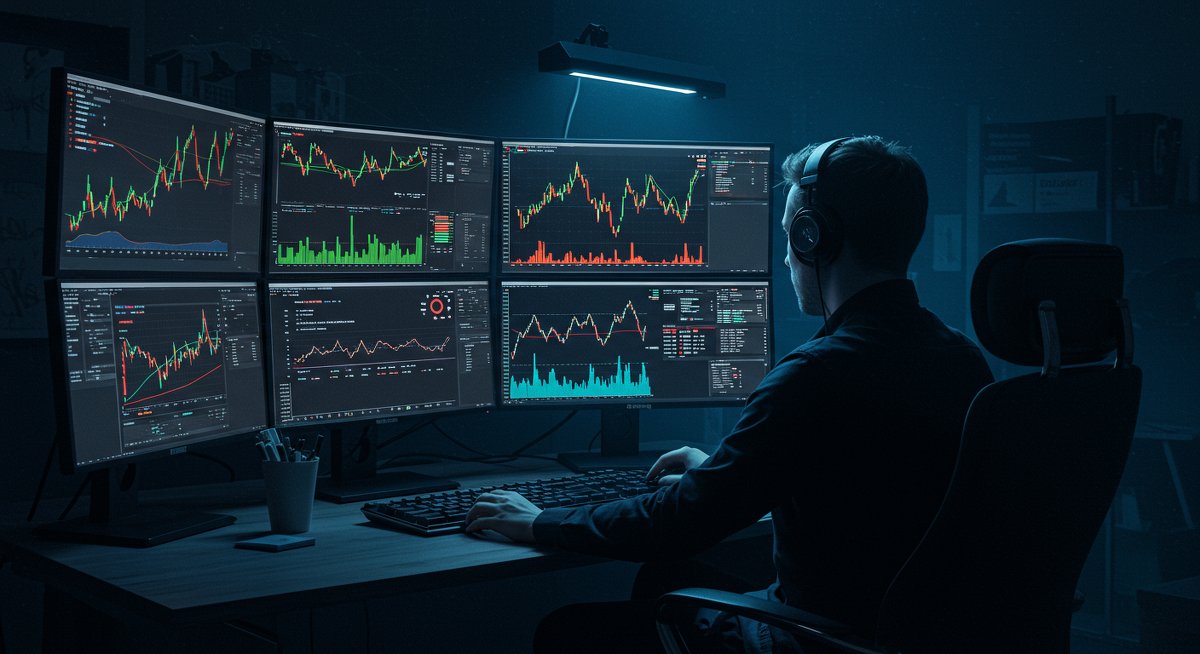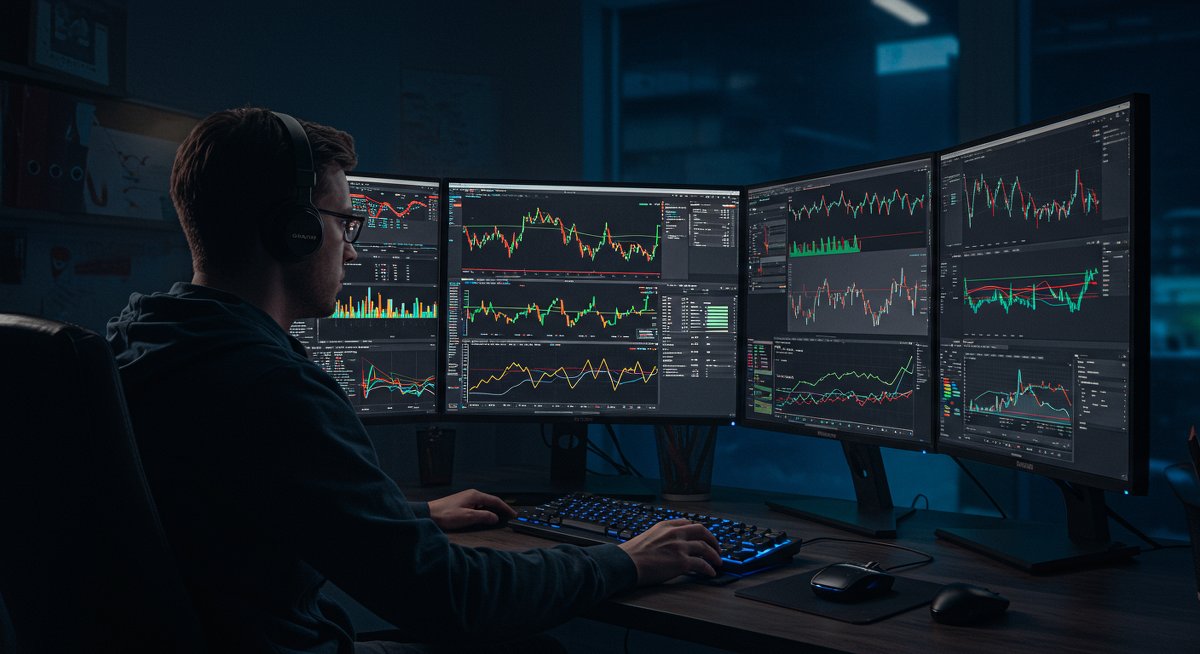That Reddit Post That Got Me Thinking
So, I was scrolling through r/Bitcoin the other day, and I saw this post that really caught my eye. Someone was talking about how the market supposedly absorbed a $9 billion Bitcoin sell-off with barely a scratch. Nine billion dollars! The poster was comparing it to what would happen if someone dumped that much stock in a traditional company like Royal Bank of Canada. It’s a valid point. You’d expect absolute carnage. But Bitcoin? It shrugged it off. This got me thinking about what that really means for us as traders, especially those of us dealing with the added complexities of international crypto markets. Is it really a sign of strength? Or are there other factors at play that we need to understand to protect our portfolios?
Think about it: $9 billion is a lot of money. That’s more than the GDP of some small countries. And yet, Bitcoin's price barely moved in response. The original poster on Reddit was right to be surprised. It defies traditional market logic. But crypto, as we all know, rarely plays by traditional rules. This event could signal a maturing market, where large sell-offs are increasingly absorbed by growing institutional interest and wider adoption. Or, it could be a temporary blip in an otherwise volatile landscape. We need to dig deeper.

Here's What Actually Happened (and Why It Matters)
Okay, so let's break down what might have actually happened during this supposed $9 billion sell-off. First, it's important to remember that the crypto market is incredibly complex. It's not like a single entity just dumped all that Bitcoin at once. It's more likely that several large holders gradually sold off their positions over a period of time. This allows the market to absorb the selling pressure more effectively. Also, consider the timing. Was this sell-off timed to coincide with positive news or other bullish signals? Sometimes, large players will strategically sell into strength, knowing that the market is more likely to shrug it off.
Another key factor is the presence of sophisticated trading algorithms. These algorithms are designed to detect and react to large sell orders, often buying up the Bitcoin before the price has a chance to crash. Think of it like a self-regulating mechanism that prevents excessive volatility. Finally, let's not forget the sheer volume of trading activity in the Bitcoin market. Billions of dollars change hands every single day. So, while $9 billion is a significant amount, it's not necessarily enough to completely overwhelm the market. It's like a large wave hitting a vast ocean – it might cause a ripple, but it won't cause the entire ocean to drain away. But what about the panic sellers and people selling to live? The Reddit post mentioned those too. That's where it gets interesting because those smaller players are often more reactive to market movements.
What This Means For Your Crypto Strategy
Alright, so what does all this mean for you, the average crypto trader trying to navigate this wild west? Well, first of all, it's a good reminder that Bitcoin is proving to be surprisingly resilient. It's not the fragile asset that some critics make it out to be. This resilience suggests that Bitcoin could be a more reliable store of value than many people realize, especially in times of economic uncertainty. If you're holding Bitcoin as a long-term investment, this is definitely encouraging news. It means that you don't necessarily have to panic every time you see a headline about a large sell-off. But that doesn't mean you should become complacent. The crypto market is still incredibly volatile, and anything can happen. It's always important to be prepared for the unexpected. Think about it this way: even if Bitcoin can withstand a $9 billion sell-off, it could still be vulnerable to other factors, such as regulatory changes, technological disruptions, or even just a shift in market sentiment.
Here’s what I'd do: First, don't put all your eggs in one basket. Diversify your portfolio across different cryptocurrencies and asset classes. Second, set stop-loss orders to limit your potential losses. Third, stay informed about the latest news and developments in the crypto market. And fourth, don't be afraid to take profits when you have them. Remember, the goal is to make money, not to become a Bitcoin maximalist. Having a plan can really protect you when the market gets shaky.
The Stuff Nobody Likes to Talk About (But Should)
Okay, let's get real for a minute. Nobody likes to talk about the downside, but it's crucial to understand the risks involved in crypto trading. I'm not trying to scare you, but I want to be upfront about the potential pitfalls. One of the biggest risks is, of course, volatility. Even though Bitcoin has proven to be surprisingly resilient, it can still experience massive price swings. You could wake up one morning and find that your portfolio has lost a significant portion of its value. That's just the nature of the beast. Another risk is the potential for regulatory crackdowns. Governments around the world are still grappling with how to regulate cryptocurrencies, and there's a chance that they could impose restrictions that would negatively impact the market.
Then there's the risk of scams and fraud. The crypto world is full of bad actors who are looking to take advantage of unsuspecting investors. Be careful about who you trust and always do your own research before investing in any cryptocurrency. Phishing scams, Ponzi schemes, and outright theft are all too common in the crypto space. Finally, there's the risk of losing your private keys. If you lose your private keys, you lose access to your Bitcoin. There's no way to recover them. So, it's essential to store your private keys securely. Consider using a hardware wallet or a multi-signature wallet to protect your assets. I know it sounds like a lot to worry about, but it's better to be prepared than to be caught off guard. Risk management is not about being afraid; it's about being smart.
Trading Bitcoin From Outside the US
If you're trading Bitcoin from outside the US, there are a few extra things you need to keep in mind. First and foremost, you need to be aware of the local crypto regulations in your country. Some countries have embraced cryptocurrencies, while others have banned them outright. Make sure you understand the rules of the game before you start trading. For example, some countries may require you to pay taxes on your crypto profits, while others may not. It's always best to consult with a tax professional to ensure that you're complying with all applicable laws. Also, be aware of the potential for currency exchange fees. When you're buying or selling Bitcoin with a foreign currency, you may have to pay a fee to convert your funds. These fees can eat into your profits, so it's important to factor them into your trading strategy.
Another consideration is the availability of crypto exchanges. Not all crypto exchanges are available in all countries. You may have to use a VPN to access certain exchanges. However, be aware that using a VPN can sometimes violate the terms of service of the exchange. Finally, be aware of the potential for political instability. If you live in a country with a history of political turmoil, your crypto assets could be at risk. Consider diversifying your holdings across multiple countries to protect yourself from political risk. Trading internationally definitely adds a layer of complexity. You also have to consider differences in market maturity and adoption rates.

Actually Trading Bitcoin After a Major Market Event
Okay, so how do you actually put all this into practice? Let's say you're looking at trading Bitcoin after a major market event like this $9 billion sell-off. The first thing you need to do is assess the market sentiment. Are people panicking, or are they remaining calm? Look at social media, news articles, and trading forums to get a sense of the overall mood. Next, analyze the price charts. Has Bitcoin already recovered from the sell-off, or is it still trading at a discount? Look for patterns and trends that could give you an edge.
Once you've assessed the market sentiment and analyzed the price charts, it's time to develop a trading plan. Decide on your entry point, your stop-loss level, and your target profit. Stick to your plan, even if you're tempted to deviate from it. Remember, discipline is key to successful trading. When you're ready to execute your trade, use a reputable crypto exchange like KuCoin or Changelly. Be sure to use strong passwords and enable two-factor authentication to protect your account. Finally, monitor your trade closely and be prepared to adjust your plan if necessary. The market can change quickly, so you need to be flexible and adaptable. Remember to only trade what you can afford to lose, and never invest more than you're comfortable with. Remember, slow and steady wins the race.
My Personal Take on All This Bitcoin Stuff
So, here's my take on all this Bitcoin business. I think the fact that Bitcoin absorbed a $9 billion sell-off without a major price crash is a testament to its growing maturity and resilience. It's a sign that Bitcoin is becoming a more mainstream asset, and that it's attracting institutional investors who are willing to buy the dips. However, I also think it's important to remain cautious. The crypto market is still relatively new and unregulated, and there are plenty of risks involved. I'm not a financial advisor, and this isn't financial advice. I'm just sharing my own personal opinions. Always do your own research before investing in any cryptocurrency.
Maybe I'm wrong. Maybe Bitcoin is just a fad that will eventually fade away. But I don't think so. I believe that Bitcoin has the potential to revolutionize the financial system, and that it will continue to play an increasingly important role in the global economy. Whether you agree with me or not, I think it's important to stay informed about Bitcoin and other cryptocurrencies. They're not going away anytime soon. This recent event just reinforces my belief that Bitcoin, with proper management, can be a valuable part of a diversified portfolio. But remember, only invest what you can afford to lose, and always be aware of the risks involved. I'm remaining cautiously optimistic.